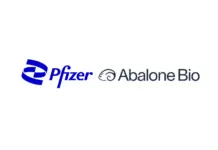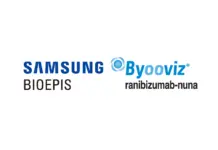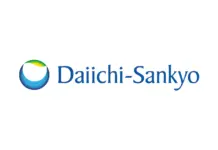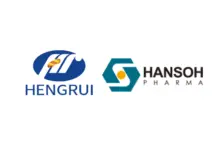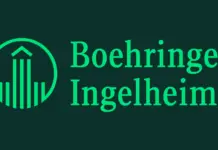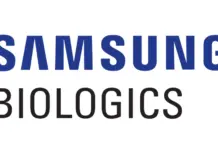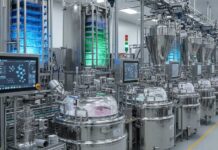Novartis announced today that the US Food and Drug Administration (FDA) has approved Farydak® (panobinostat, previously known as LBH589) capsules in combination with bortezomib* and dexamethasone for the treatment of patients with multiple myeloma who have received at least two prior regimens, including bortezomib and an immunomodulatory (IMiD) agent[1].
“Farydak represents an exciting agent with a new mechanism of action that is part of a promising class of drugs in this setting,” said study investigator Paul Richardson, MD, Clinical Program Leader and Director of Clinical Research, Jerome Lipper Multiple Myeloma Center at Dana-Farber Cancer Institute. “Importantly, Farydak has been shown to improve progression-free survival in relapsed multiple myeloma patients who have received at least two prior regimens, including bortezomib and an IMiD, which is an area of particular unmet medical need.”
Farydak has been shown to extend the progression-free survival (PFS) benefit of the standard-of-care therapy in this patient population[1]. Farydak is approved under accelerated approval based on PFS[1]. Continued approval for this indication may be contingent upon verification and description of clinical benefit in confirmatory trials. The FDA’s accelerated approval program gives patients access to treatments for serious or life-threatening illnesses that provide meaningful therapeutic benefit over existing treatments. The FDA has approved a risk evaluation and mitigation strategy (REMS) for Farydak. The REMS program serves to inform and educate healthcare professionals about the risks that may be associated with Farydak treatment.
This FDA approval is based on efficacy and safety data in a pre-specified subgroup analysis of 193 patients who had received prior treatment with both bortezomib and an IMiD during the Phase III, randomized, double-blind, placebo-controlled, multicenter global registration trial, called PANORAMA-1 (PANobinostat ORAl in Multiple MyelomA)[1]. The trial found that the median PFS benefit increased in Farydak patients who had received prior treatment with both bortezomib and an IMiD (10.6 months; n=94), as compared to the placebo arm (5.8 months; n=99) (hazard ratio=0.52 [95% confidence interval (CI): 0.36, 0.76])[1].
The most common adverse reactions (incidence >= 20%) in clinical studies are diarrhea, fatigue, nausea, peripheral edema, decreased appetite, pyrexia and vomiting[1]. The most common non-hematologic laboratory abnormalities (incidence >= 40%) are hypophosphatemia, hypokalemia, hyponatremia and increased creatinine[1]. The most common hematologic laboratory abnormalities (incidence >= 60%) are thrombocytopenia, lymphopenia, leukopenia, neutropenia and anemia[1]. Farydak can cause fatal and serious toxicities including severe diarrhea and cardiac toxicities. Severe diarrhea occurred in 25% of Farydak-treated patients. Severe and fatal cardiac ischemic events, including severe arrhythmias and ECG changes have occurred in patients receiving Farydak. Serious adverse events (SAEs) occurred in 60% of patients treated with Farydak, bortezomib and dexamethasone compared to 42% of patients in the control arm. The most frequent (>= 5%) treatment-emergent SAEs reported for patients treated with Farydak were pneumonia (18%), diarrhea (11%), thrombocytopenia (7%), fatigue (6%) and sepsis (6%). Additional serious adverse reactions included hemorrhage, myelosuppression, infections, hepatotoxicity and embryo-fetal toxicity[1].
“Novartis is committed to developing innovative first-in-class therapies for patients who need treatment options,” said Bruno Strigini, President, Novartis Oncology. “Farydak represents a new drug class in multiple myeloma, providing these patients with an important treatment approach for this difficult-to-treat cancer.”
Farydak is the first histone deacetylase (HDAC) inhibitor available to patients with multiple myeloma[3]. As an HDAC inhibitor, its epigenetic activity may help to restore cell function in multiple myeloma[4].
Additional regulatory submissions for Farydak are being reviewed by health authorities worldwide.
About multiple myeloma
Epigenetics is the cell programming that governs gene expression and cell development[3]. In multiple myeloma, the normal epigenetic process is disrupted (also called epigenetic dysregulation) resulting in the growth of cancerous plasma cells, potential resistance to current treatment, and ultimately disease progression[5],[6]. Multiple myeloma impacts approximately 1 to 5 in every 100,000 people globally[7]. Multiple myeloma is a cancer of the plasma cells, a kind of white blood cell present in bone marrow-the soft, blood-producing tissue that fills the center of most bones. The cancer is caused by the production and growth of abnormal cells within the plasma, which multiply and build up in the bone marrow, pushing out healthy cells and preventing them from functioning normally[8]. Multiple myeloma is an incurable disease with a high rate of relapse (when the cancer returns) and resistance (when the therapy stops working), despite currently available treatments[2]. It typically occurs in individuals 60 years of age or older, with few cases in individuals younger than 40[9].
About Novartis
Novartis provides innovative healthcare solutions that address the evolving needs of patients and societies. Headquartered in Basel, Switzerland, Novartis offers a diversified portfolio to best meet these needs: innovative medicines, eye care, cost-saving generic pharmaceuticals, preventive vaccines and over-the-counter products. Novartis is the only global company with leading positions in these areas. In 2014, the Group achieved net sales of USD 58.0 billion, while R&D throughout the Group amounted to approximately USD 9.9 billion (USD 9.6 billion excluding impairment and amortization charges). Novartis Group companies employ approximately 130,000 full-time-equivalent associates. Novartis products are available in more than 180 countries around the world.








